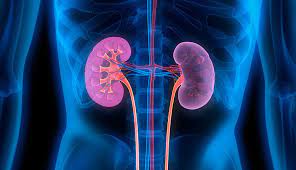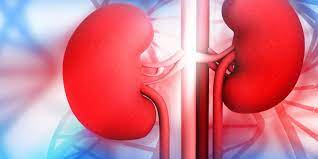Role of Fruits in Creatinine Levels
The Role of Fruits in Maintaining Healthy Creatinine Levels

What is Creatinine?
In our body, creatinine is produced by muscles when they use energy. As a result of the breakdown of creatine, a molecule found in muscles, it provides energy to them. In the body, creatinine is constantly produced and filtered out of the blood by the kidneys, which then excrete it through the urine.
Creatinine levels are a crucial indicator of kidney function, and maintaining them within a healthy range is essential for overall well-being. While various factors contribute to kidney health, incorporating fruits into your diet can be a beneficial and delicious way to support your kidneys. Let’s explore how fruits contribute to the maintenance of healthy creatinine levels.
1) Rich in Antioxidants:
Fruits, such as berries (blueberries, strawberries, and raspberries), papaya are loaded with antioxidants. These compounds help combat oxidative stress, reducing the risk of kidney damage. Antioxidants neutralize free radicals, which can contribute to inflammation and kidney dysfunction.
2) Hydration Support:
Many fruits, such as watermelon, oranges, and cucumbers, have high water content. Staying well-hydrated is essential for kidney health as it helps flush out waste products, including excess creatinine, through urine.
3) Low in Sodium:
High sodium intake can contribute to elevated blood pressure and kidney problems. Fruits like bananas, oranges are naturally low in sodium and high in potassium helps in balancing the levels of sodium, making them a healthy choice for individuals looking to maintain optimal creatinine levels.
4) Potassium Balance:
Some fruits, like bananas, oranges, and melons, are good sources of potassium. Maintaining a balance between sodium and potassium is crucial for kidney function. Potassium helps regulate fluid balance and supports proper muscle (helps to treat muscle cramps) and nerve function.
5) Anti-Inflammatory Properties:
Chronic inflammation can negatively impact kidney health. Fruits like cherries, grapes , papaya and pineapples plays a great role in inflammation. Pineapple contain anti-inflammatory compound bromelain, an enzyme that may help reduce inflammation and protect against kidney damage. Bromelain breaks the protein making it easy to digest and helps in muscle building. High protein helps in lowering of creatinine levels.
6) Fiber for Digestive Health:
Fiber-rich fruits, including apples, pears, and kiwi, contribute to digestive health by regulating bowel movements. A healthy digestive system aids in the efficient elimination of waste products, which can positively influence creatinine levels.
7) Natural Detoxification:
Some fruits, like grapefruit, contain nutrients including vitamins A, C, and B1 and pantothenic acid, fiber, potassium, and biotin. Enzymes found in grapefruit may also break down the fat in your body to help promote weight loss and also support the natural detoxification process in the body. This can assist in the removal of waste products and toxins, contributing to kidney health.
Conclusion:
Incorporating a variety of fruits into your diet can be a flavorful and effective way to support kidney health and maintain optimal creatinine levels. However, it’s important to note that a holistic approach to kidney health includes a balanced diet, proper hydration, regular exercise, and consultation with a healthcare professional. Individual dietary needs may vary, and personalized advice is recommended for those with specific health concerns or conditions. Remember, moderation and variety are key when it comes to enjoying the numerous benefits that fruits offer for overall well-being.


